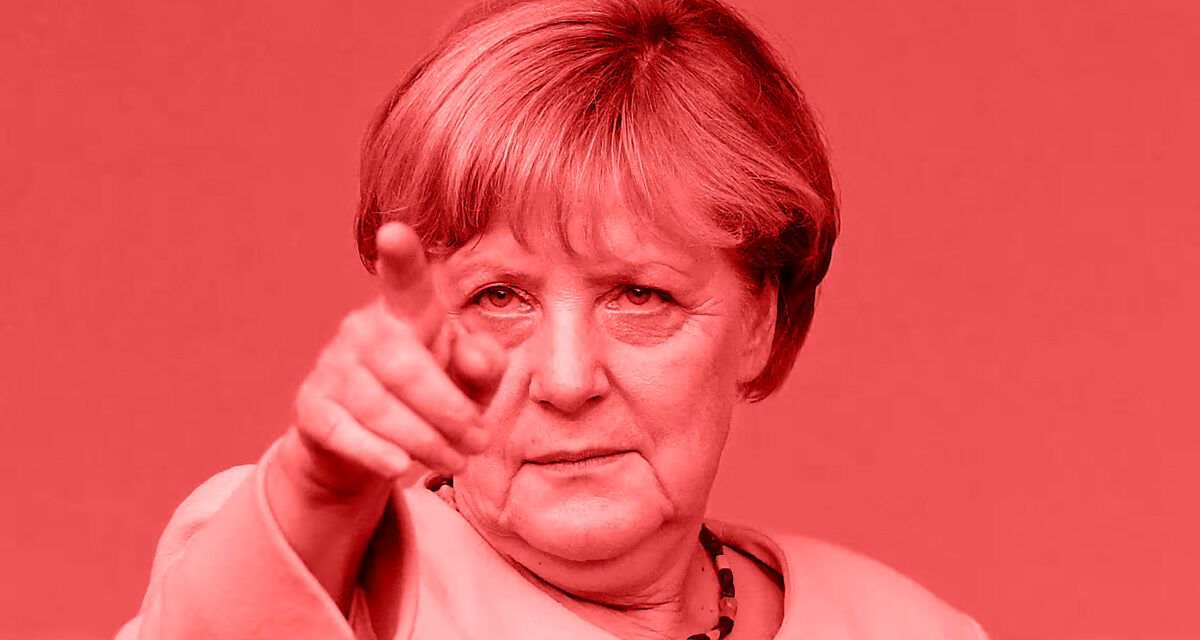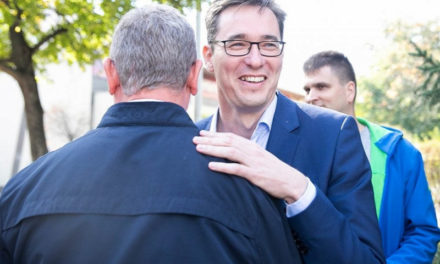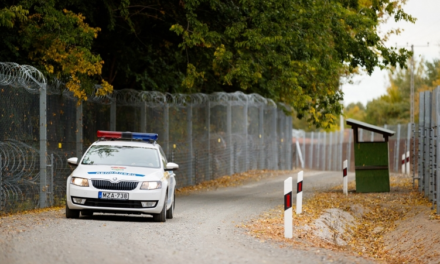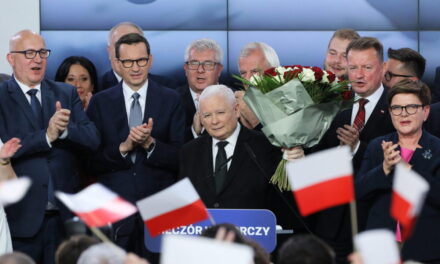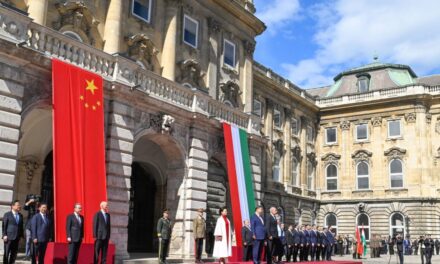In the details of Angela Merkel's confession entitled "Freedom" that have been published so far, there is no trace of her characteristic pragmatism, instead some kind of evil fixation unfolds, which Trump and Putin fill with content.
On November 26, former German chancellor Angela Merkel's more than 700-page memoir entitled Freedom will be published, in which Merkel, who is also nicknamed the Bundesmutti, mostly tells the story of her time as head of government between 2005 and 2021 through her own lens.
To help promote her book, one or two articles and a taste of what Merkel, who is stepping down from politics in 2021, will write about have already been published - The Guardian has now published two excerpts from it.
***
Angela Merkel says her first mistake with Donald Trump was treating him as if he was "totally normal", but she quickly realized the US president's "emotional" nature and his soft spot for authoritarians and tyrants.
In her book, Merkel reports on the first time she met Donald Trump in the White House in 2017. The American president then tried to humiliate him by not accepting Merkel's handshake, after which Merkel gently whispered in Trump's ear that they should shake hands.
Instead of bearing it stoically, I whispered to him to shake hands again. As soon as the words left my mouth, I shook my head to myself. How could I forget that Trump knew exactly what he was doing… He wanted people to talk about his behavior while I acted like I was talking to a perfectly normal person
- writes the former German chancellor, who has been working on his book since he left politics in December 2021.
Since Merkel is no longer bound by diplomatic etiquette and kindness, she writes openly about her opinion on Trump. According to the former Bundesmutti, Trump is driven by his emotions, mostly resentment and the desire to be liked by everyone, which is in stark contrast to Merkel's factual approach.
His main goal seemed to be to make the person he was talking to feel guilty... At the same time, I got the impression that he also wanted the person he was talking to to like him
- believes Merkel, who also harshly criticized the Republican president, who will return to the White House next year.
According to Merkel, Trump was "obviously fascinated by the Russian president" as well as "politicians with autocratic and dictatorial traits" instead of trying to build bridges with traditional allies.
After their first meeting at the White House, Merkel saw Trump as follows:
Trump saw everything as a real estate developer before he entered politics—a zero-sum game. For him, every country was a rival, the success of one meant the failure of the other. He did not think that prosperity could be increased for everyone through cooperation
sums up his views on Trump.
According to Merkel, Trump despised multilateral cooperation, for example when he withdrew the United States from the Paris climate agreement. The decision depressed the chancellor so much that he asked Pope Francis for advice.
Without mentioning names, I asked him how he would approach a situation where there are fundamentally opposing opinions within a group of important people. He understood immediately and simply said:
»I bend, I bend, I bend, but I'm careful not to break. I like this picture."
Merkel also points out that Donald Trump campaigned in 2016 with sharp criticism of the German Chancellor's Wilkommenskultur policy, when he claimed that the migrants admitted during the 2015 refugee crisis had destroyed the German economy. In addition, Trump has accused Germany of abusing the goodwill of the United States, as the president says Berlin pursued an unfair trade policy toward Washington and enjoyed a free ride on U.S. military investments, themes that have been recurring themes during Trump's campaign this year.
By the way, Merkel writes in her book that she "wishes" with all her heart for Kamala Harris to defeat Trump - since then, as we know, this has not happened.
According to Merkel, Putin is manipulative and vindictive
Merkel, who speaks Russian perfectly thanks to her East German origin, also discusses her experiences with the Russian president, Vladimir Putin, as well as her policy with Russia.
He considers Putin manipulative and vindictive - a memorable moment was when Vladimir Putin for her fear of dogs, with a labrador in the room during their meeting in the Kremlin - but in his book he admits that Putin had legitimate arguments in his famous anti-Western speech at the Munich Security Forum in 2007 in his speech . Referring to Putin's words at the time, he writes:
There were a few points that I didn't think were completely absurd. As far as we know, there was never any evidence of chemical weapons in Iraq
- writes Merkel, referring to the invasion of Iraq launched by George W. Bush in 2003, which the then American president explained by the fact that the Iraqi dictator, Saddam Hussein, was a mass destroyer and possessed chemical weapons that they wanted to use against other countries.
However, it later turned out that Washington's goal was actually to replace Hussein's regime - and according to some opinions, the 9/11 terrorist attack was a show of force.
Merkel also writes about how she saw the behavior of Putin and Russia on the international stage, as well as her own role in it. Exercising a little self-criticism, he reports that he was also criticized for failing to update the Conventional Armed Forces in Europe (CFE) agreement, which was signed by NATO and the Warsaw Pact in 1990, defining the conventional armed forces the amount of forces and armaments and the destruction of more weapons.
According to Merkel, this should have been amended after the dissolution of the Warsaw Pact, the collapse of the Soviet Union, and the eastern expansion of NATO - by the way, Russia suspended the implementation of the treaty in 2007.
Merkel also criticizes some Eastern European leaders without mentioning names.
The former German chancellor is doing this in connection with their Russia policy, as he believes that several Eastern European leaders believe that Russia can simply be excluded and neglected.
You can consider this childish and irresponsible, and shake your head. But this will not make Russia disappear from the map
- says Merkel, who also discusses the antecedents of the Russian invasion launched against Ukraine on February 24, 2022.
Merkel recalls that Putin was really worried about Ukraine joining NATO - according to him, this could have led to the invasion. Without mentioning a specific date, he reports that Putin once told him about this:
You will not be chancellor forever and they will be NATO members. And I want to prevent that.
Celebrating his 70th birthday in July. Merkel led Germany for 16 years between 2005 and 2021, making her the third-longest German chancellor after Otto von Bismarck and Helmut Kohl.
Although he left politics as a popular chancellor, his political legacy based on pragmatism has been criticized several times since his departure. According to several critics, Merkel's Willkommenskultur policy in 2015 led to the rise of the far-right Alternative für Deutschland (AfD) and the decline of German mainstream parties, and that Merkel, who also plays a strong role in international politics, pursued a bad policy towards Russia - on the one hand, she was unable to prevent Russia's invasion of Ukraine, on the other hand, the German economy depended on Russian fossil energy carriers for too long.
Angela Merkel's book, Szabadság, will be published on November 26, 2024, in addition to the original, German-language edition, among others, in Hungarian.
Featured image: Civilians. Info graphics

